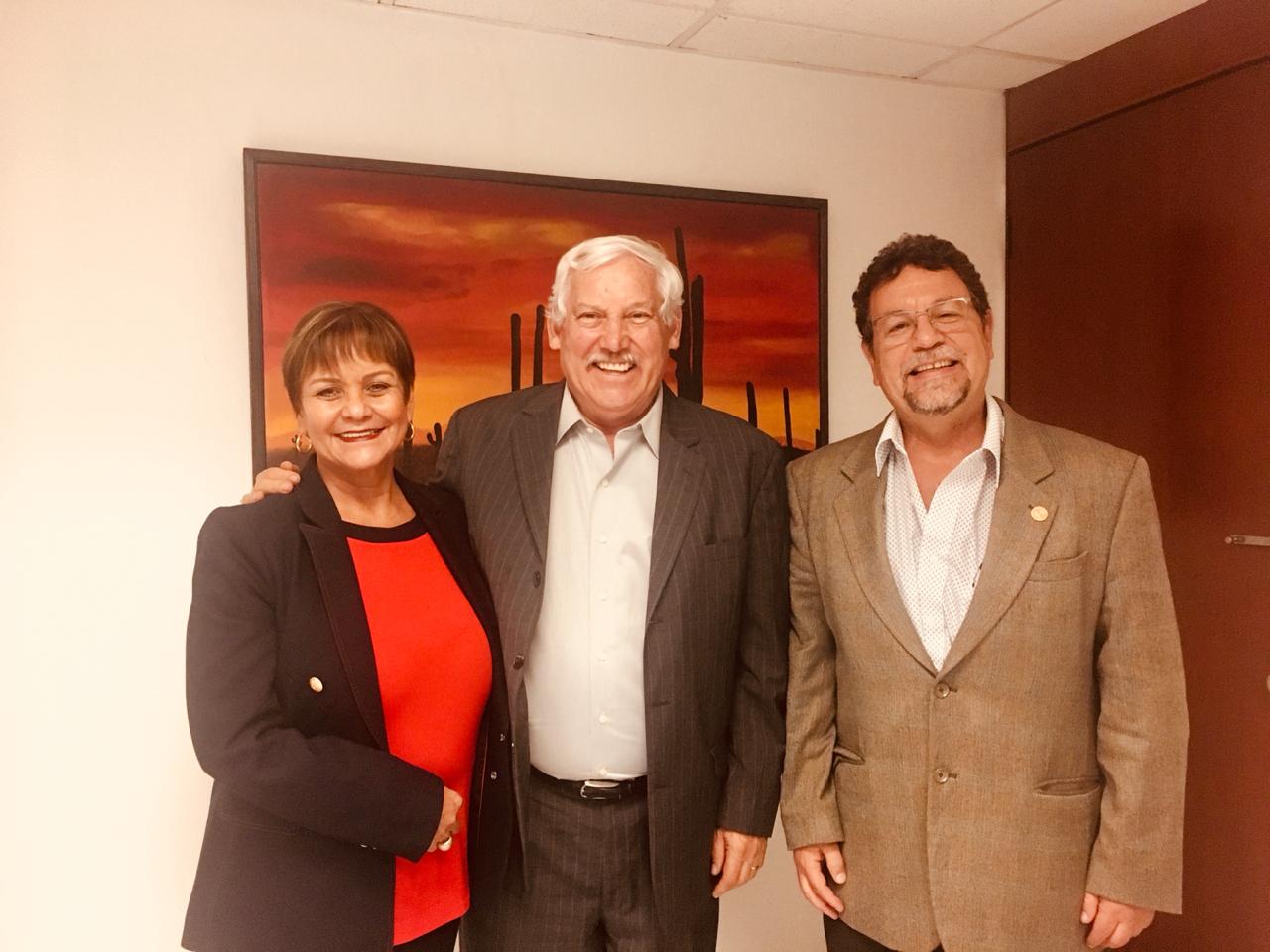Gloria Abraham, IICA Representative in Mexico, and Diego Montenegro, Director of Management and Regional Integration of the international agency, participated in the meeting. They were welcomed by Víctor Villalobos, Secretary of Agriculture-elect of Mexico, and his work team, who endorsed IICA’s work for the benefit of Mexico’s agriculture sector.

Mexico City, 19 October 2018 (IICA) – Senior staff of the Inter-American Institute for Cooperation on Agriculture (IICA) and the work team of the Secretary of Agriculture-elect of Mexico, Víctor Villalobos, reiterated their commitment to strengthen the strategic partnership that the two institutions established for the benefit of the rural sector in the Americas.
As part of a transition process that will culminate with the investiture of the new President of Mexico, the IICA Representative in Mexico, Gloria Abraham, and the Director of Management and Regional Integration, Diego Montenegro, met with Secretary-elect Villalobos and his team, who endorsed IICA’s work for the benefit of Mexico’s agriculture sector.
Both work teams agreed to drive a joint agenda for the benefit of the rural sector in Mexico and across the Americas, and discussed the technical, social and economic criteria for this work.
In Mexico, IICA’s projects are implemented within the framework of a general agreement with the Secretariat of Agriculture, Livestock, Rural Development, Fisheries and Food (SAGARPA) and public and private institutions, and have gained widespread recognition from Mexican authorities due to their technical capacity, which has strengthened the country’s agrifood sector.
“The challenges faced by the Mexican countryside are complex and require joint efforts in order to boost the country’s agricultural development,” explained Abraham.
During his visit to Mexico, the Director of Management and Regional Integration of IICA stated that it was of paramount importance to strengthen the work carried out with SAGARPA and institutions of the agrifood sector in order to drive the development of Mexico’s countryside.
“It is necessary to evaluate and support agrifood initiatives and projects in order to enhance Mexican agriculture’s potential and to improve the well-being of the rural population,” stated Montenegro.
On the other hand, Villalobos underscored the importance of the cooperation provided by IICA, whose assistance and expertise contributes to strengthening agricultural activity, which is key for development in the Americas.
Both teams listed the main contributions of IICA’s technical cooperation efforts, including the development of public policies and institutional frameworks; technological, institutional and trade innovation; agricultural health and agrifood safety; the strengthening of the entrepreneurial and associative capabilities of chain stakeholders; capacity building for stakeholders in rural areas; and improved capacities for interaction, networking and collaboration in international cooperation.
More information:
Gloria Abraham, IICA Representative in Mexico
Diego Montenegro, Special Affairs Coordinator for the Northern Region at IICA











